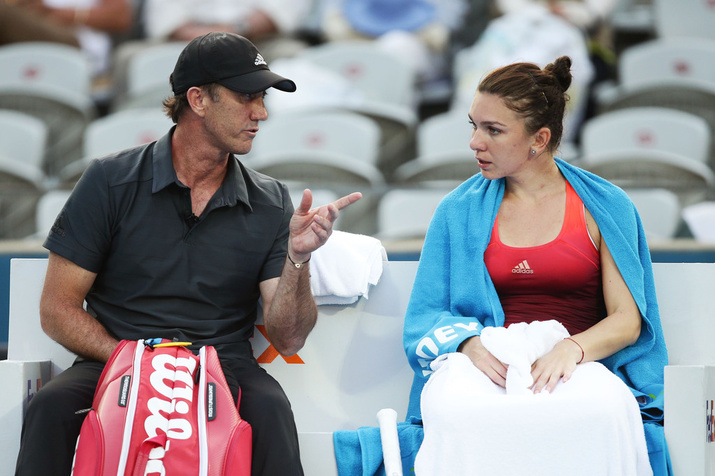Don't miss any stories → Follow Tennis View
FollowThe On-Court Coaching Debate in Tennis
There has been plenty of captivating play over the past month as the tennis version of March Madness prepares to come to an end with the conclusion of the Miami Open this weekend. But for all of the awe-inducing points and shocking upsets on the court, there has been plenty of drama off the court as well. One of the less divisive but no less intriguing topics that has been thrust to the forefront is the subject of on-court coaching and whether or not it deserves a place in the sport.
The topic of on-court coaching once again found itself in the spotlight thanks to comments from Darren Cahill and Brad Gilbert. The two ESPN commentators have both coached some of the greatest legends in the sport and have a gift for imparting their knowledge and analysis to mold champions. When it comes to the subject of on-court coaching, however, they are on opposite ends of the spectrum.

For his part, not only is Gilbert for maintaining on-court coaching in the WTA, but also he would like to see it extended to the ATP. There is no denying that there are some benefits to be seen in such a scenario, especially since there is a fair amount of controversial illegal coaching that already happens from the stands now. But there are more sound reasons for expanding on-court coaching too. Coaches are in a better position to take stock of what is happening over the course of a match and therefore are more able to quickly troubleshoot losing patterns. Allowing a coach to impart that wisdom could theoretically lead to a higher-quality match in the end as well. These are benefits that are taken for granted in many of the other major sports, where a coach is right there on the bench with the players, constantly reading the situation and making the necessary adjustments. It perhaps seems silly that tennis would not allow the players' coaches the same opportunities.
Then again, the fact that a coach is so often not allowed to talk to his or her player is an aspect that draws many people to tennis. It gives the sport an even greater feeling of two single combatants battling it out with only their skills and minds to get them across the finish line. That problem-solving trait is something that many fans value in a player, and it is a skill that Cahill believes is the job of a coach to teach his charge.
Cahill also notes another pitfall of on-court coaching as it currently exists in the sport, and that is the danger that players can become too reliant on it. Competitors may depend on a coach to tell them the best strategies to employ during a match, or they may also count on a coach to calm them down when in the midst of a mental crisis. But on-court coaching is not allowed at the majors, and there is a genuine concern that some players will not be able to cope when it matters most if they have come to depend so heavily on having their coaches come to their aid. In fact, more then a few people suggested that it was this lack of access to a coach over the course of play that led to the astronomical number of upsets on the women's side at this year's Australian Open.

That perceived dependency is also another legitimate area of concern about on-court coaching. The women of the WTA are fierce competitors, capable of producing some exciting and scintillating tennis. Yet when things start to go south, it appears many of the women need someone to help bail them out of a jam. The fact that so many of them employ male coaches only makes this appear worse. Then there is the behavior that players exhibit during the on-court coaching visit. Many do not talk to their coaches, and a number of them do not even make eye contact, which often comes across as disrespectful. It does not paint a flattering picture, and in light of the increased debate regarding prize money for men and women, the last thing the women want is fans believing that they need help to win a match while their male counterparts (officially) do not.
Of course, love it or hate it, on-court coaching probably is not going anywhere any time soon. Gilbert and Cahill make compelling cases, and irrespective of which side one takes in the argument, both sides can probably agree on-court coaching should be an “all-or-nothing” policy. In its current format, it hurts the game – predominantly the women's game – so hopefully this is a discussion that will continue to gain traction and bring about necessary changes.










